Photo report: 'Victory' over Isis in Mosul comes at a terrible cost
Iraqi forces repeatedly used coalition air strikes in Mosul, often to kill teams of just two or three Isis fighters armed with light weapons.
Iraqi forces are still battling to retake a tiny sliver of the Old City held by Islamic State militants, a day after the prime minister visited soldiers to congratulate them on their victory. As Haider al-Abadi toured the city on foot, air strikes and exchanges of gunfire could still be heard in the narrow streets of the Old City. The road where the soldiers celebrated was scarred with gaping holes from explosions and rubble from a flattened multi-storey shopping mall.
Over nearly nine months of the campaign, Iraqi forces — backed by air strikes from the US-led coalition — have reduced the militant's hold on Iraq's second-largest city to less than a square kilometre of territory. But the air strikes have also reduced much of the city to rubble.
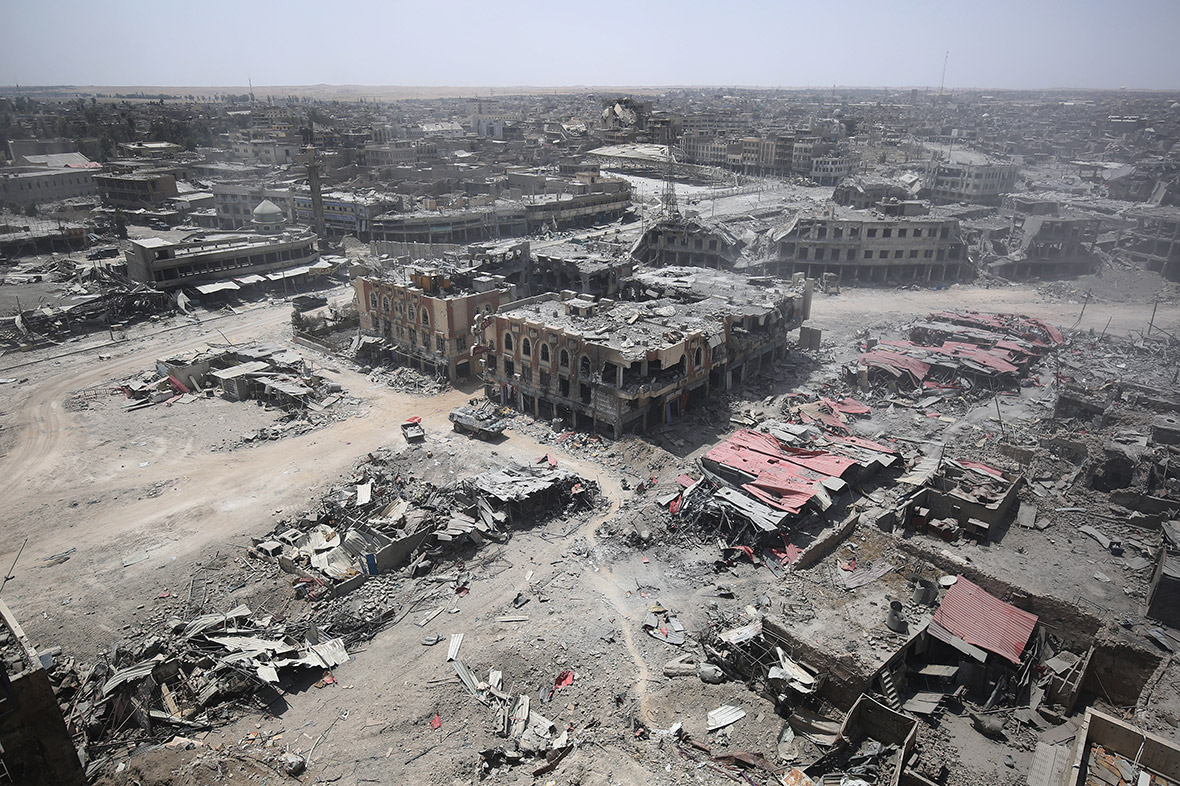




Inside the Old City the path carved by Iraqi forces levelled buildings that date back centuries, shattered priceless architecture and littered the narrow alleys with corpses decomposing in the summer heat. The city's iconic al-Nuri Mosque and its famous leaning minaret were destroyed a month ago by Isis to deny the Iraqi forces a symbolic triumph.














The government forces' territorial gains in Mosul's Old City have largely been propelled by air strikes, despite the high risk of civilian casualties and warnings from human rights groups of the dangers of using large munitions in the dense, highly-populated area.
Special forces Lt Col Muhanad al-Timimi said over three days his forces carried out about 20 air strikes a day on an area of the Old City about one square kilometre in size. "It's because we have a lot of enemy forces here," he said, conceding the number of munitions used was relatively high.



Throughout the fight against Isis, the US-led coalition has largely relied on air strikes to enable Iraqi ground forces to advance. But in previous battles, civilians were evacuated from front lines. In Mosul, the Iraqi government told the city's estimated one million people to stay put to avoid massive displacement.
As strikes pummelled the Old City, thousands of civilians fled. Many were badly injured and had to be carried out over mounds of rubble by family members. Deeper inside the district, narrow alleyways were littered with bodies.
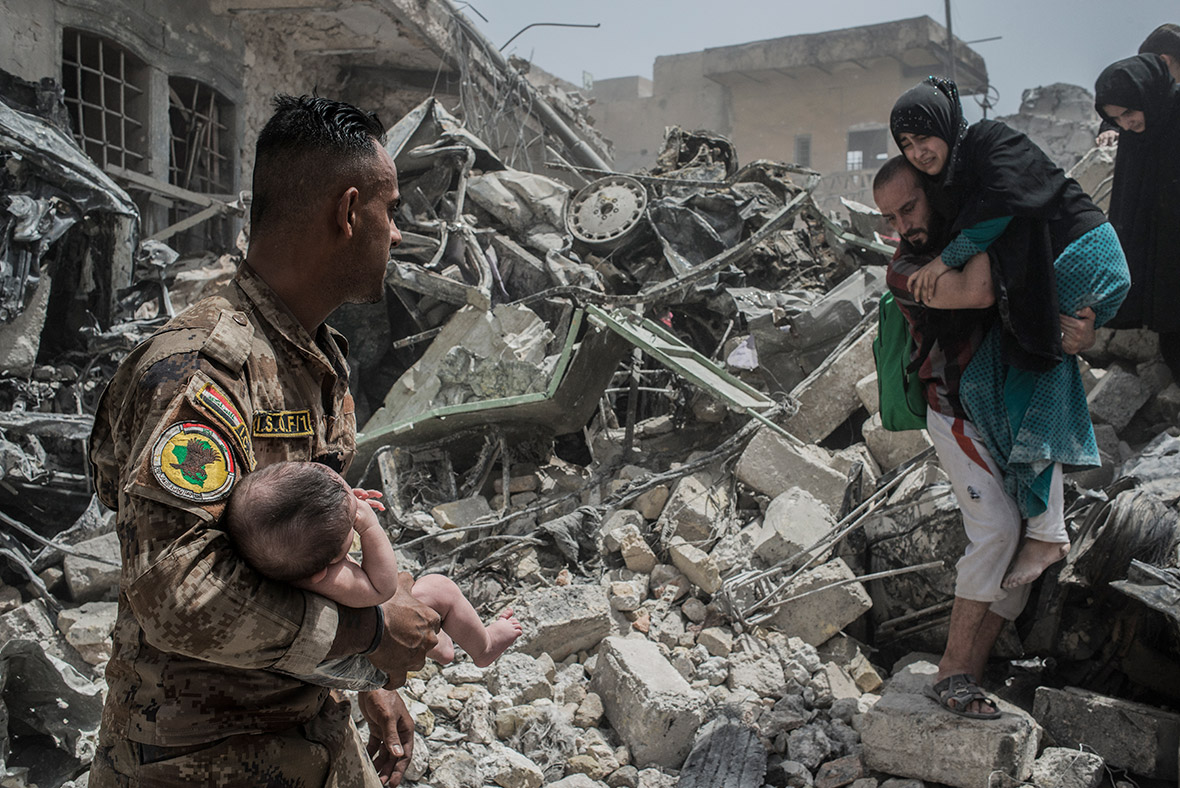

Iraqi forces have repeatedly requested air strikes in Mosul, often to kill teams of just two or three Isis fighters armed with light weapons.
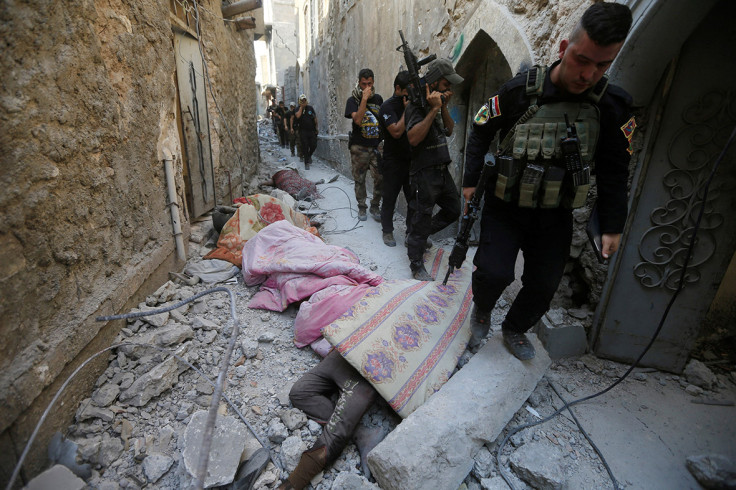
In the weeks leading up to the operation to retake the Old City the UN and human rights groups warned the Iraqi government against the use of air strikes in the densely-populated area. "In the crowded Old City, using explosive weapons with wide area effects puts civilians at excessive risk," Lama Fakih of Human Rights Watch said in a statement.
"The Coalition always seeks to use weapons that are proportional to the target to minimise collateral damage," the US-led coalition said in a written statement. "Nearly all munitions released have been precision guided to ensure we achieve the desired effects," the statement continued. "The avoidance of civilian casualties is our highest priority."
In a report released on Friday 7 July, monitoring group Airwars said they "presently estimate that between 900 and 1,200 civilians were likely killed by coalition air and artillery strikes over the course of the eight month (Mosul) campaign." The group said the territorial gains in Mosul come at a "terrible cost."

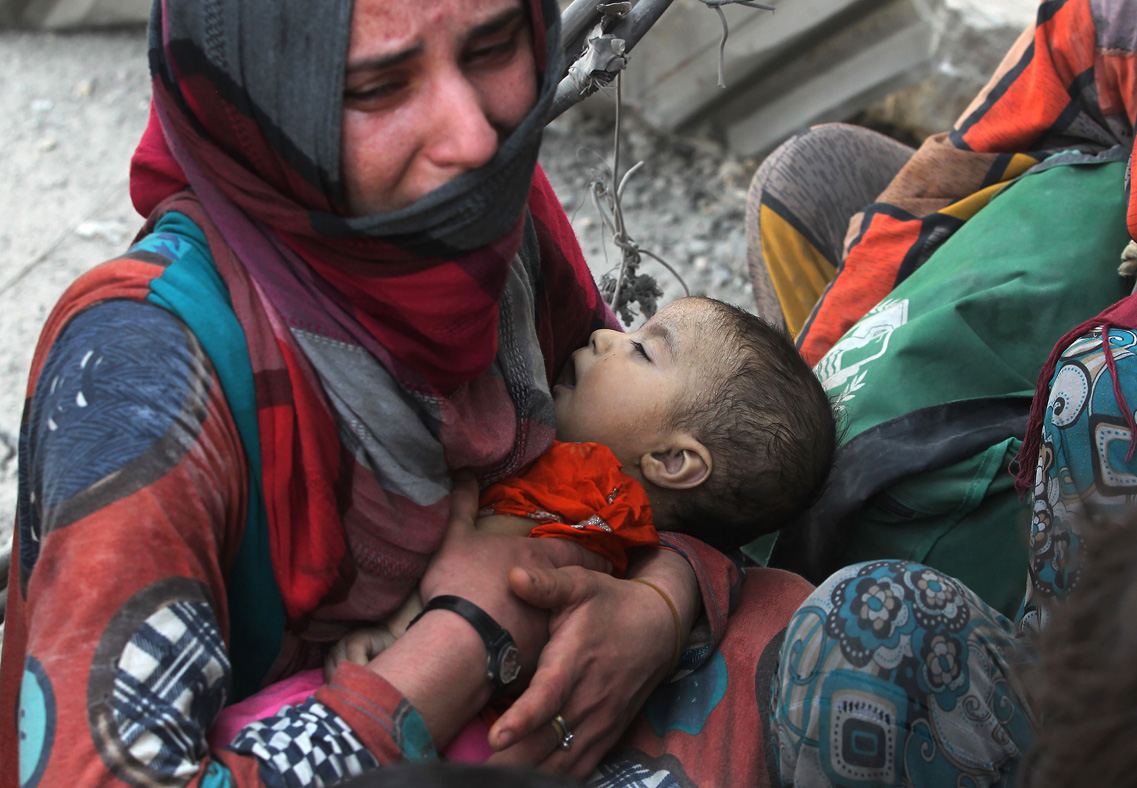
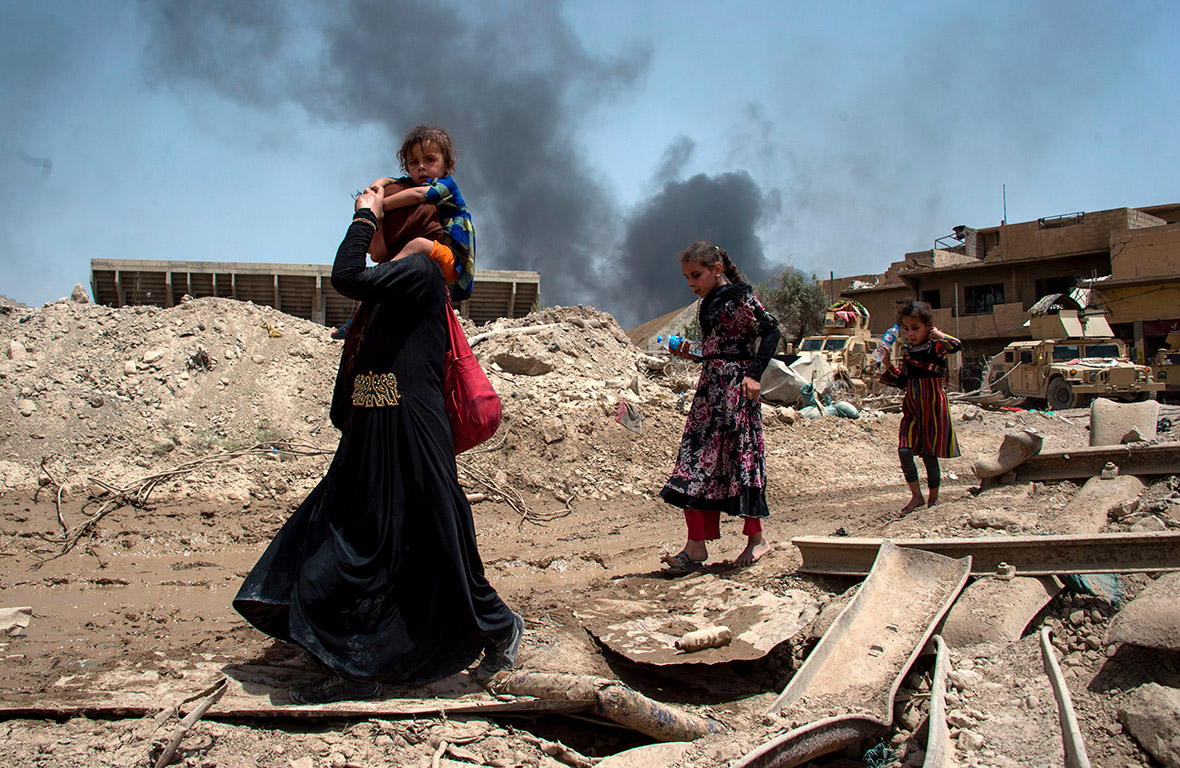
The victory in Mosul is bittersweet for the hundreds of thousands of Mosul residents displaced by months of combat, many of whom are living in camps outside the city. "If there is no rebuilding and people don't return to their homes and regain their belongings, what is the meaning of liberation?" Mohammed Haji Ahmed, 43, a clothing trader, told Reuters in the Hassan Sham camp to the east of Mosul.
The United Nations predicts it will cost more than $1 billion (£777m) to repair basic infrastructure in Mosul. In some of the worst-affected areas, almost no buildings appear to have escaped damage and Mosul's dense construction means the extent of the devastation might be underestimated, UN officials said.
© Copyright IBTimes 2025. All rights reserved.






















